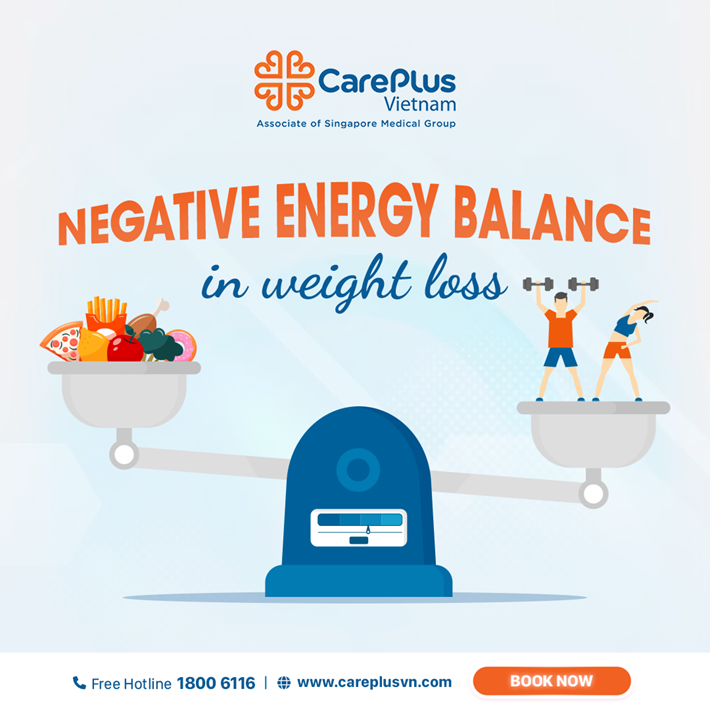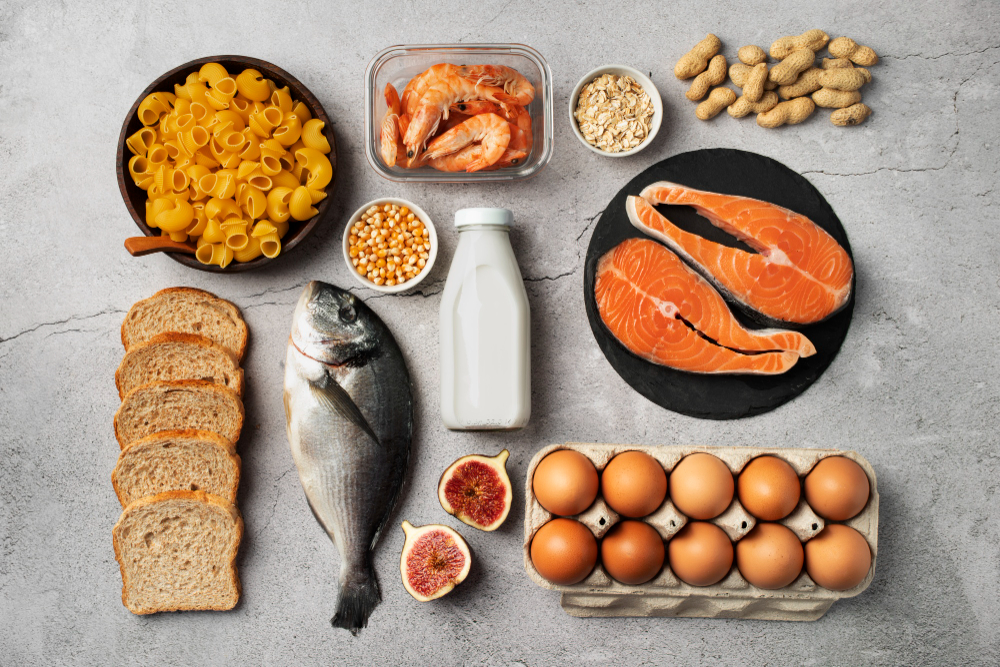NEGATIVE ENERGY BALANCE IN WEIGHT LOSS
The principle of negative energy balance is that the ENERGY IN is SMALL than the ENERGY OUT, so the body must use stored fat for energy. That means you must reach a calorie deficit by eating less or exercising more if you want to lose weight.

6/13/2024 11:38:44 AM
Losing weight has never been easy. Maintaining a sustainable weight after losing it is more complex because not everyone is persistent enough or can choose a method that suits their lifestyle.
Below is a simple method - negative energy balance in weight loss from CarePlus experts- to help you achieve your desired healthy and beautiful body!
The energy balance is the balance of calories consumed through eating and drinking compared to calories burned through physical activity. What you eat and drink is ENERGY IN (ENERGY INTAKE). What you burn through physical activity is ENERGY OUT (ENERGY EXPENDITURE).
From there, the principle of negative energy balance is that the ENERGY IN is SMALL than the ENERGY OUT, so the body must use stored fat for energy. That means you must reach a calorie deficit by eating less or exercising more if you want to lose weight.
According to the United States Department of Agriculture (USDA), the calorie intake based on recommendations for adult women ranges from 1,600 - 2,400 calories, and adult men need between 2,200 and 3,000 calories.
Here are 4 strategies that may help you lose weight.
1. Eat more protein
Protein may also help fight cravings. According to some research, high-protein foods help enhance feelings of fullness while decreasing hunger and appetite.
In addition, some research suggests that maintaining a high-protein diet may reduce weight regain and help maintain muscle mass.

2. Limit sugary drinks
Additionally, studies associate drinking sugary beverages with an increased risk of obesity.
The harmful effects of sugar also go far beyond weight gain. In fact, added sugar may contribute to other health issues, including heart disease, liver problems, and diabetes.
3. Drink more water
What’s more, drinking water immediately before meals may reduce hunger and help you eat fewer calories.
Adequate hydration has associations with improved brain health, and a reduced risk of kidney stones.
4. Excersises more
Resistance-training activities, such as lifting weights, squats, planks, etc., could help limit muscle loss and metabolic changes during long-term calorie restriction.
Cardio exercises, including walking, swimming, or jogging, are also crucial for increasing weight loss and supporting overall health.
Keep in mind that while the concept of "calories in, calories out" for weight loss might seem simple, many factors influence weight loss and the inability to lose weight, such as medical diagnoses, hormonal changes, genetics, and age.
However, it’s crucial to make sure you’re getting enough nutrients, even when you’re trying to lose weight. Otherwise, you could develop nutritional deficiencies and metabolic changes, which can make long-term weight maintenance difficult.
If you’ve tried many weight loss tips without success, or if the results haven't lasted, don’t hesitate to visit CarePlus for advice from a nutritionist.
✅ The Nutrition Examination Package at CarePlus is designed to comprehensively assess your body’s condition. Through anthropometric measurements, dietary evaluations, and clinical examinations, our doctors will provide personalized nutrition advice and a tailored exercise regimen for each individual.
CAREPLUS INTERNATIONAL CLINICS
Associate of Singapore Medical Group
Hotline: 1800 6116
Email: info@careplusvn.com
Fanpage: CarePlus Clinic Vietnam